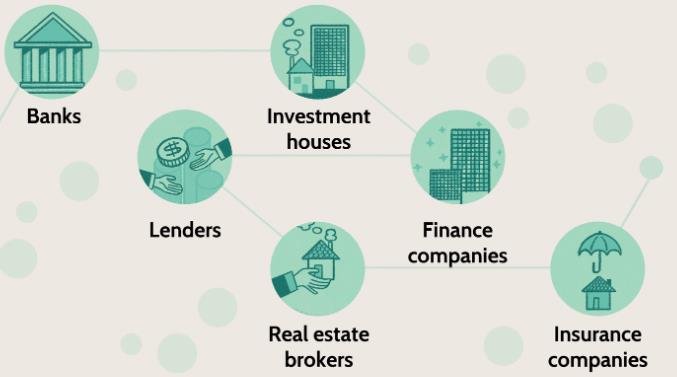Many investors who want to diversify their portfolios with exposure to the financial sector face a dilemma: they want to invest in companies that provide financial services, such as payment processors, credit rating agencies, insurance brokers and asset managers, but they want to avoid investing in banks, especially large ones. Banks are often seen as risky, volatile and prone to scandals, and some investors may have ethical or environmental concerns about them.
However, finding a financial exchange-traded fund (ETF) that excludes banks is not easy. Most financial ETFs include banks as a major component of their holdings, reflecting the dominance of banks in the financial industry. For example, the Financial Select Sector SPDR Fund (XLF), one of the most popular and liquid financial ETFs, has about 40% of its assets in banks. The Vanguard Financials ETF (VFH), another widely used financial ETF, has about 44% of its assets in banks.

The options for bank-free financial ETFs
So, are there any good financial ETFs that exclude banks? The answer is yes, but they are not very common or well-known. A Reddit user recently posted this question on the r/investing subreddit, and received some suggestions from other users. Here are some of the options for bank-free financial ETFs:
- The First Trust NASDAQ ABA Community Bank Index Fund (QABA) is an ETF that tracks an index of small U.S. banks and thrifts. It excludes the largest banks and thrifts based on asset size. This ETF may appeal to investors who want to support local and community banking, but it still has exposure to the banking industry.
- The Invesco KBW High Dividend Yield Financial ETF (KBWD) is an ETF that invests in companies that pay high dividends in the U.S. financial sector. It includes banks, but also real estate investment trusts (REITs), insurance companies, consumer finance companies and asset managers. This ETF may appeal to income-oriented investors, but it also has a high expense ratio and a high turnover rate.
- The Invesco S&P 500 Equal Weight Financials ETF (RYF) is an ETF that follows an equal-weighted index of S&P 500 companies in the financial sector. It includes banks, but also other types of financial firms such as insurance companies, investment banks, capital markets companies and consumer finance companies. This ETF may appeal to investors who want to reduce the concentration risk of large banks, but it still has exposure to the banking industry.
- The SPDR S&P Insurance ETF (KIE) is an ETF that tracks an equal-weighted index of U.S. insurance companies. It includes property and casualty insurers, life insurers, health insurers and insurance brokers. This ETF may appeal to investors who want to focus on the insurance subsector of the financial industry, but it does not include other types of financial firms.
The challenges and opportunities for bank-free financial ETFs
As these examples show, finding a financial ETF that excludes banks entirely is not easy. Most financial ETFs either include banks as a large part of their holdings, or focus on a specific subsector or niche of the financial industry. There are no pure-play ETFs for the non-bank financial sector as a whole.
This may reflect the lack of demand or awareness among investors for such an option. However, it may also present an opportunity for new entrants or existing players to create and market a bank-free financial ETF that can capture the interest and capital of investors who want to invest in the financial sector without banks.
Such an ETF could include companies that provide various types of financial services, such as payment processors (e.g., Visa and Mastercard), credit rating agencies (e.g., S&P Global and Moody’s), insurance brokers (e.g., Marsh & McLennan and Aon), asset managers (e.g., BlackRock and Vanguard) and data providers (e.g., MSCI and FactSet). These companies may offer more growth potential, more innovation and more stability than banks, as well as less regulatory risk and less exposure to economic cycles.
A bank-free financial ETF could also appeal to investors who have environmental, social and governance (ESG) criteria for their investments. Banks are often criticized for their involvement in fossil fuel financing, money laundering scandals, predatory lending practices and other negative social and environmental impacts. A bank-free financial ETF could avoid these issues and align with the values and goals of ESG investors.
